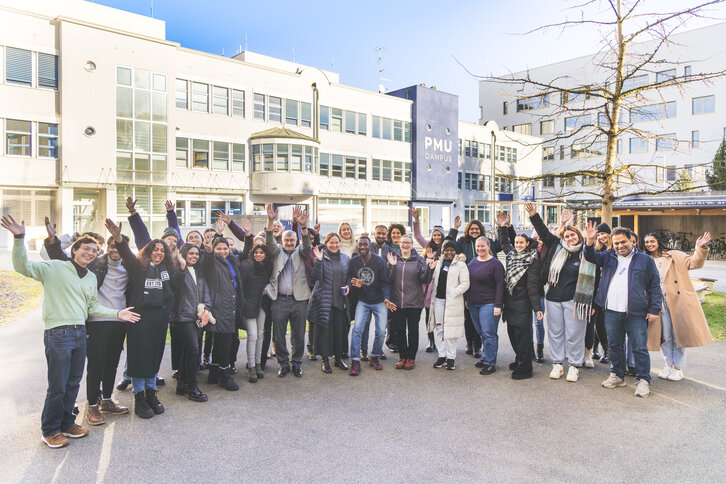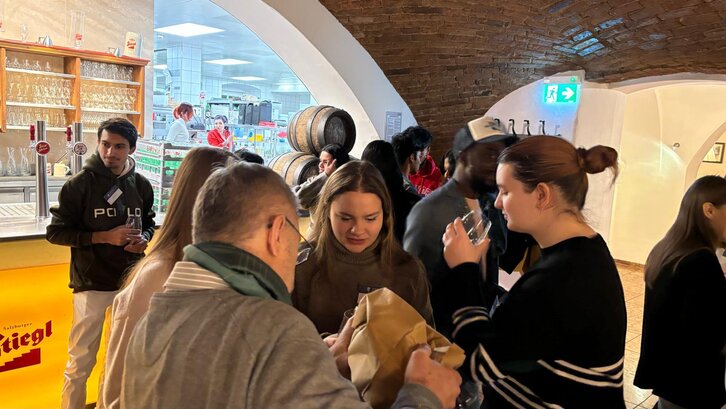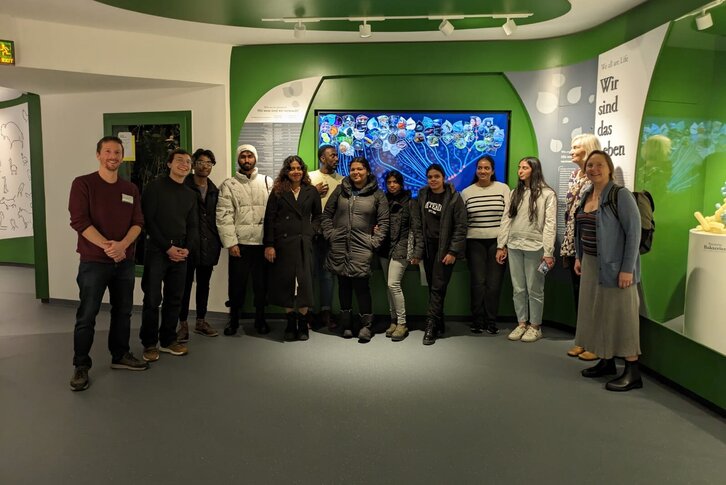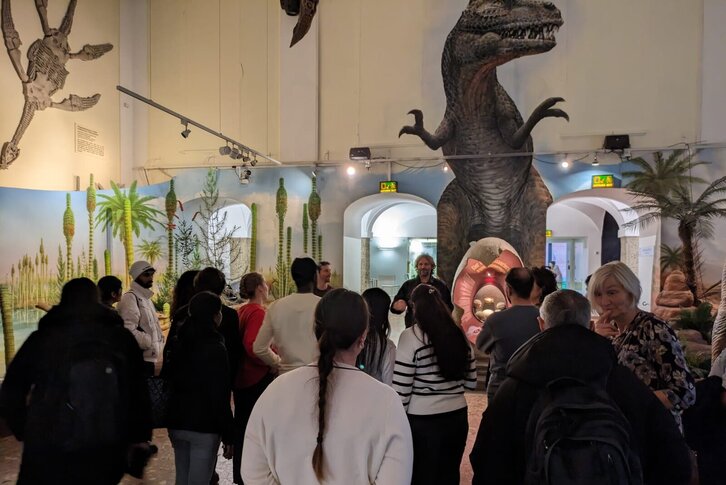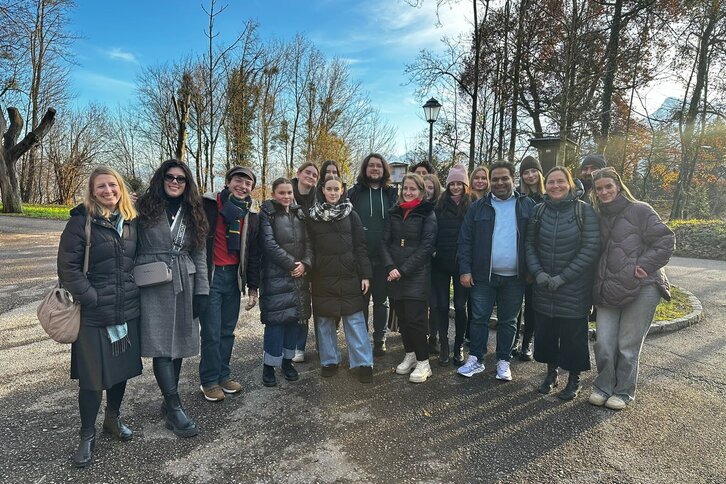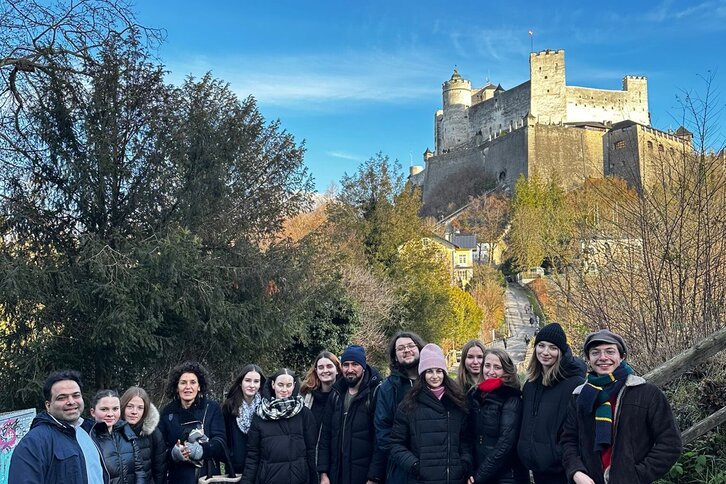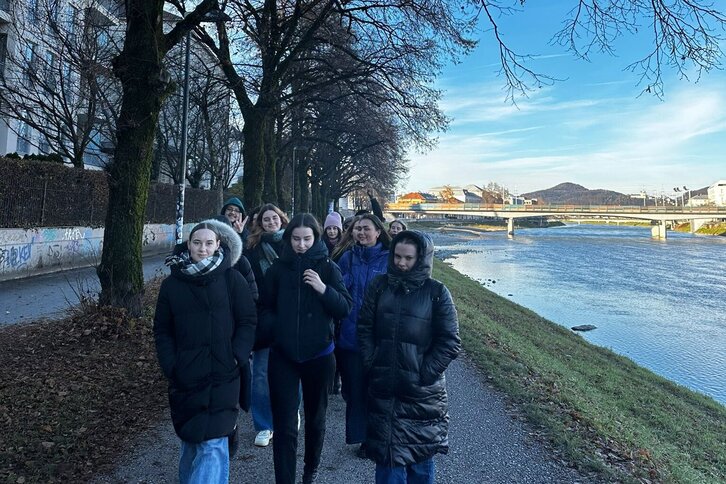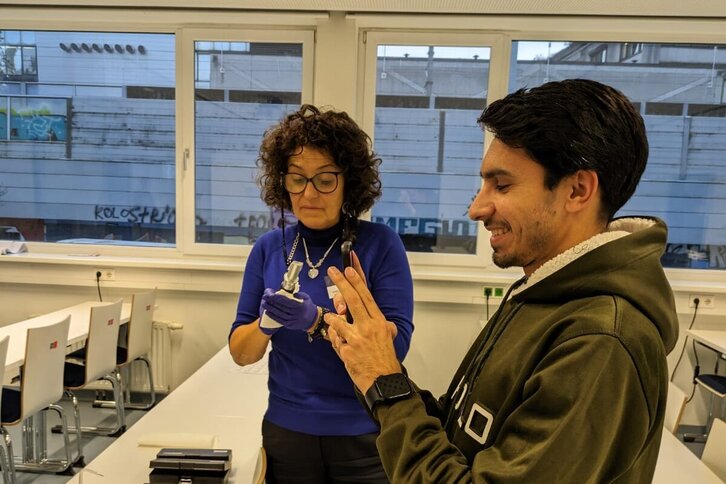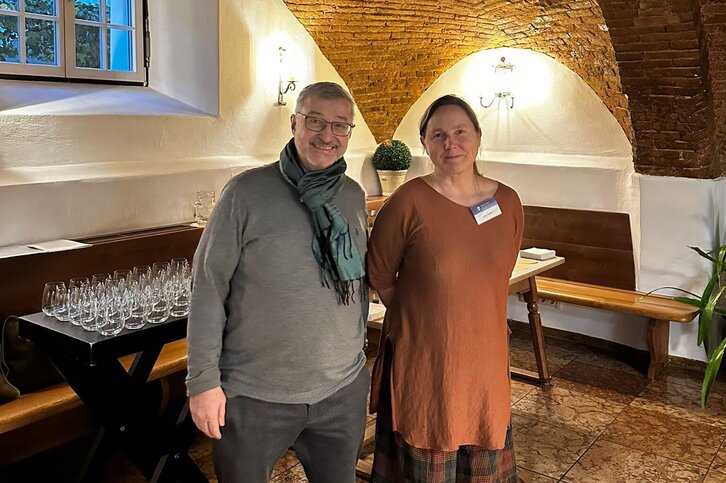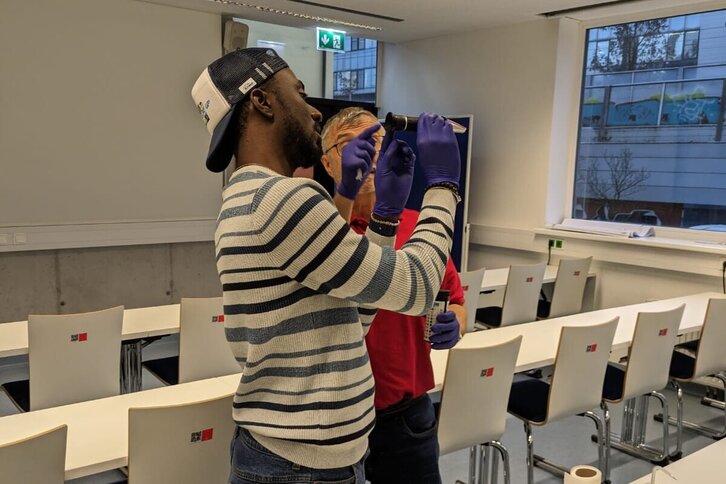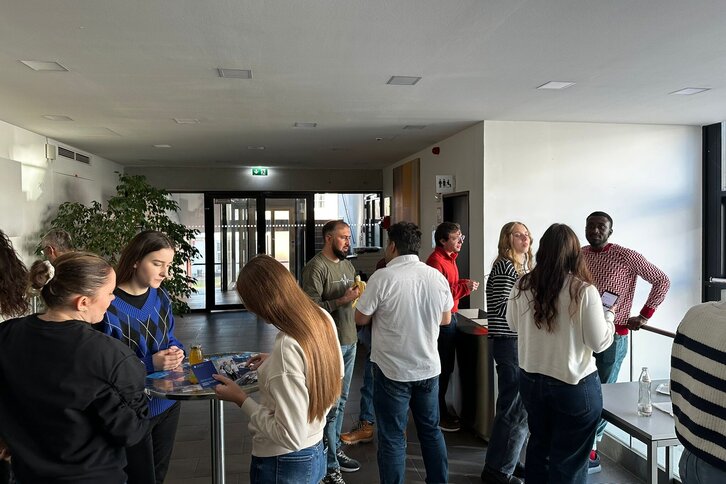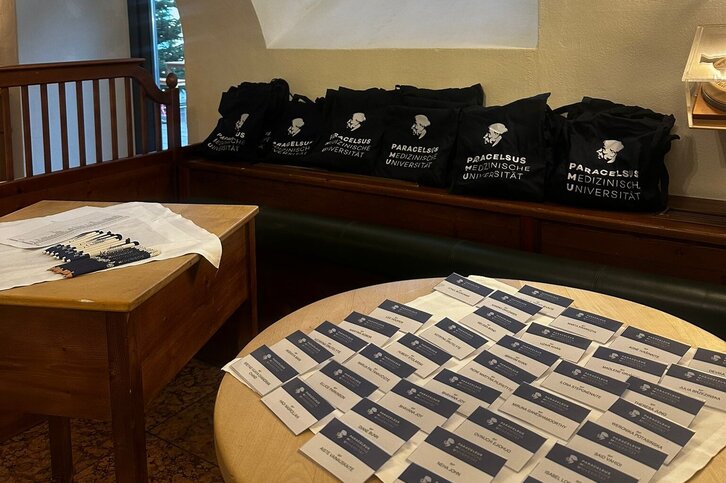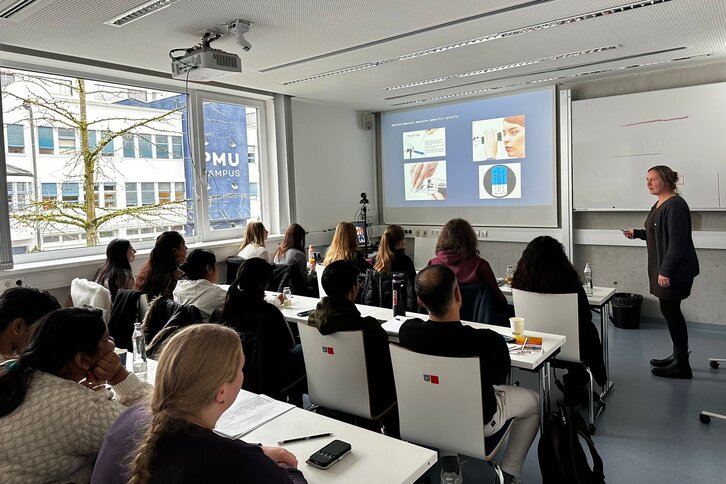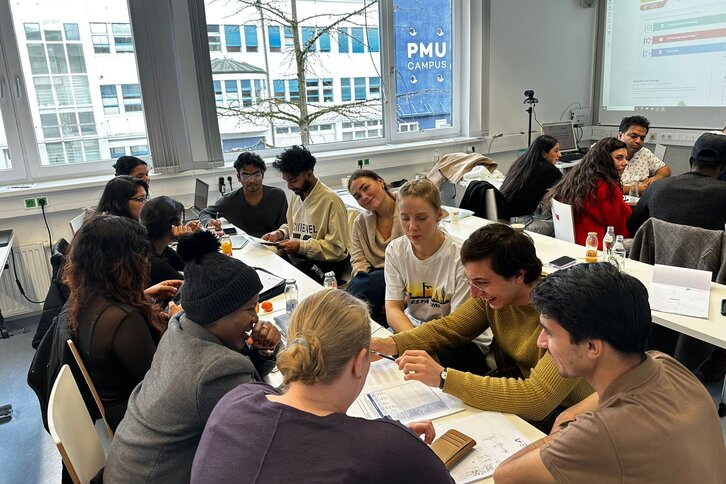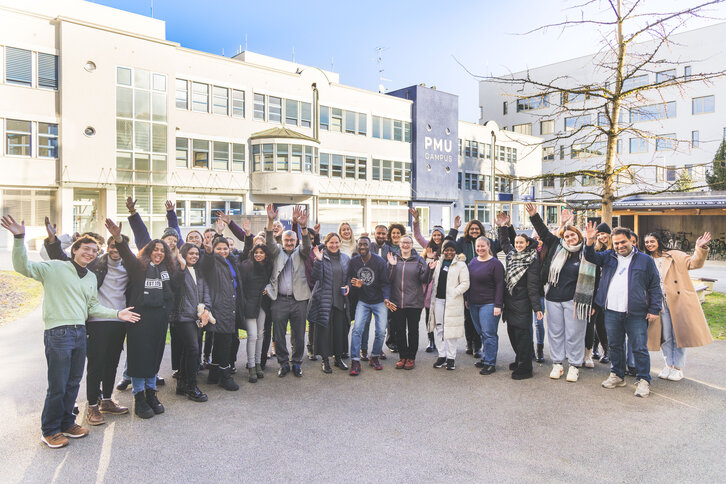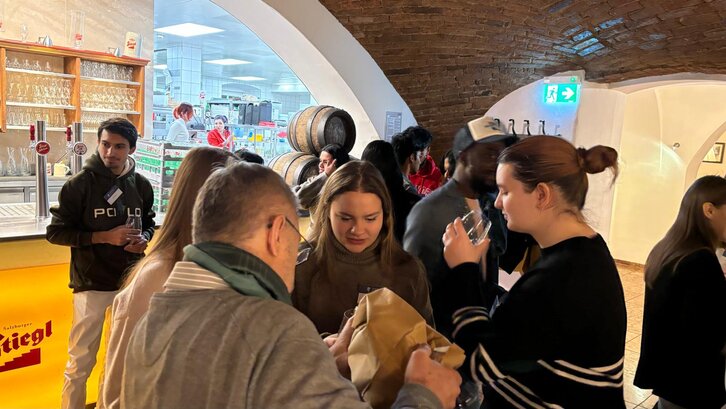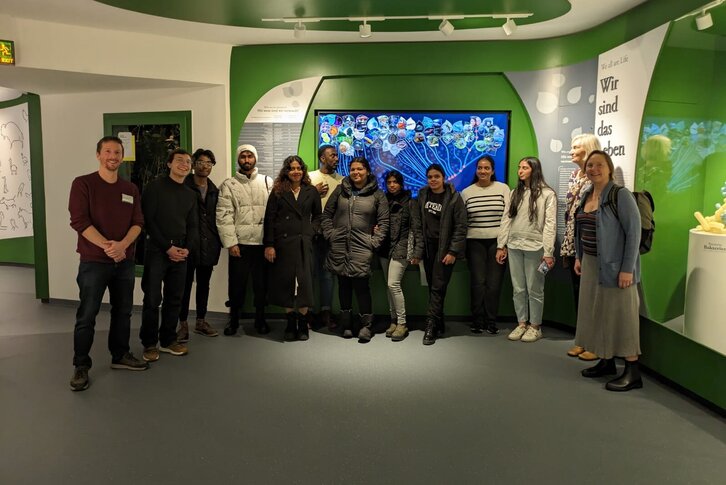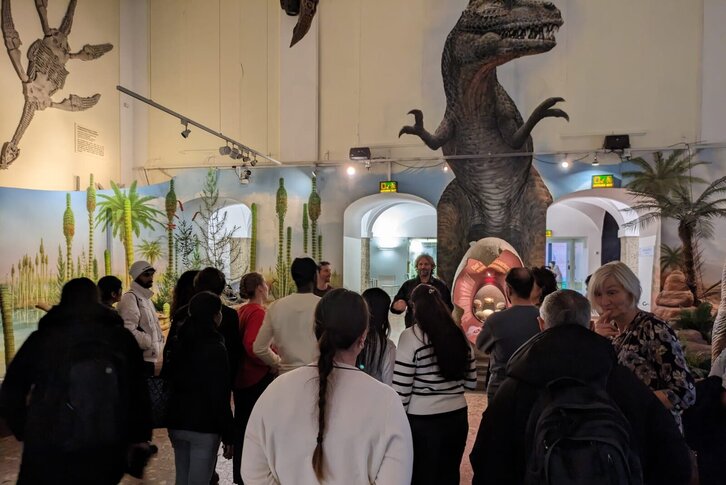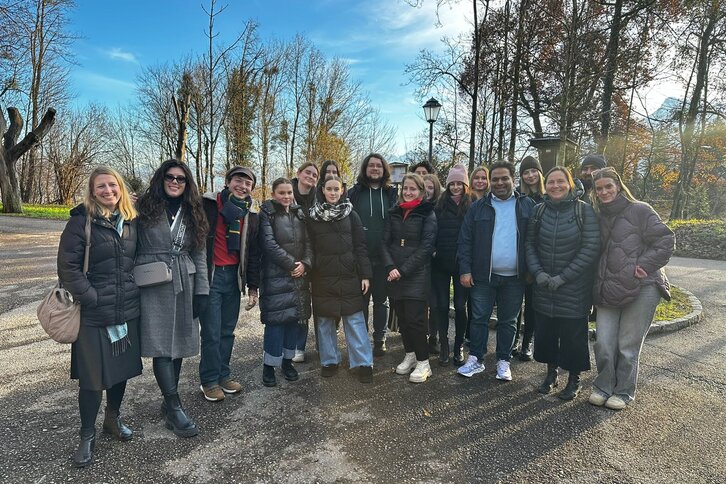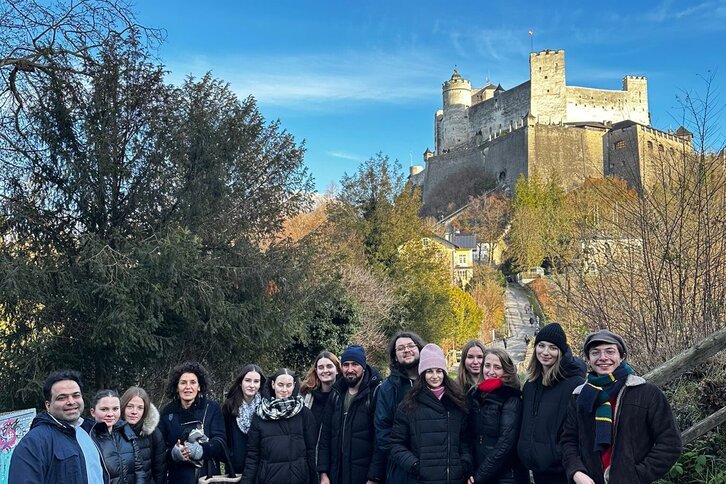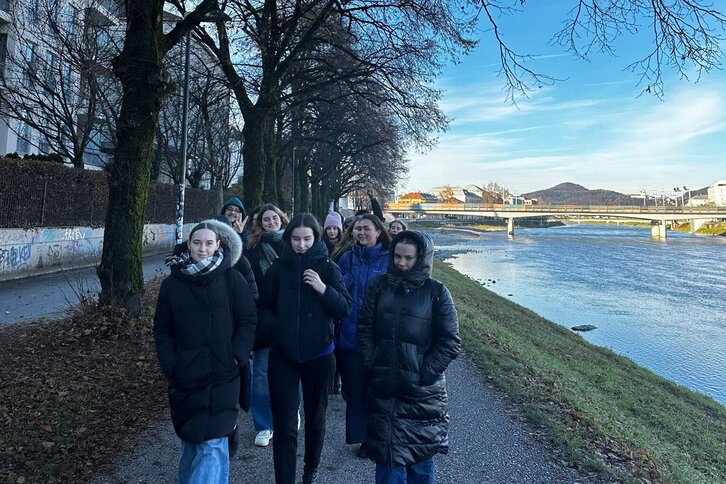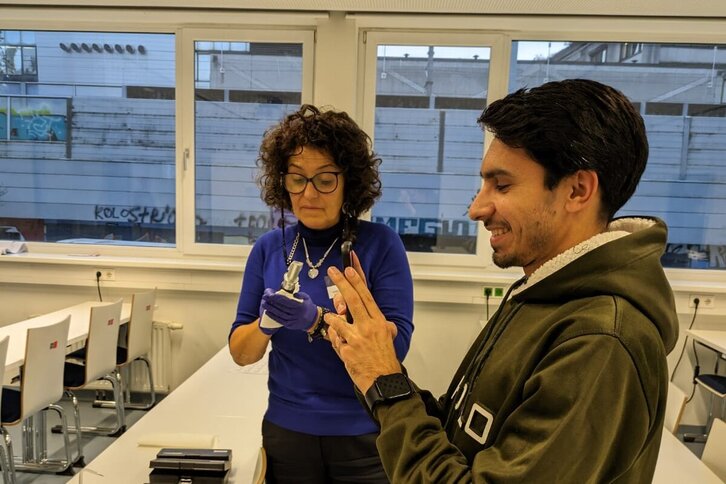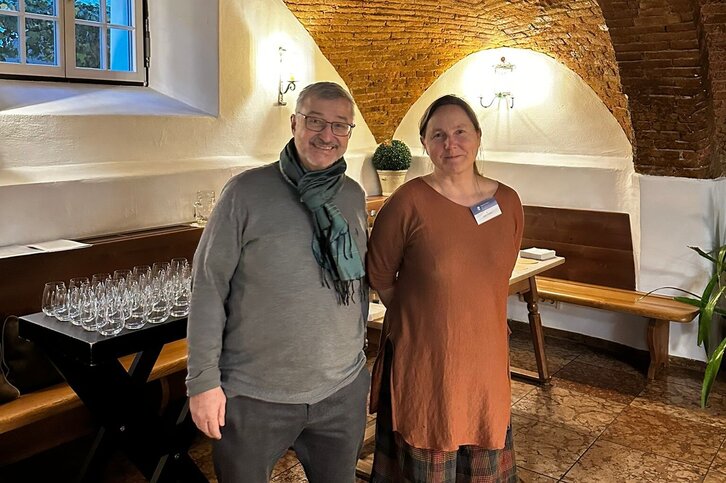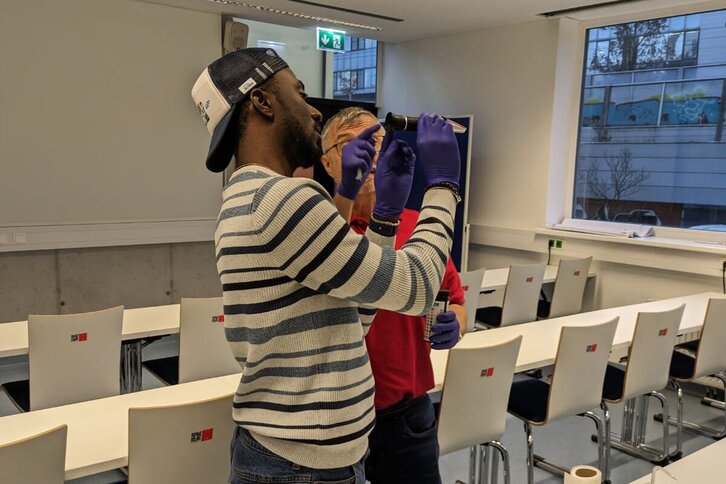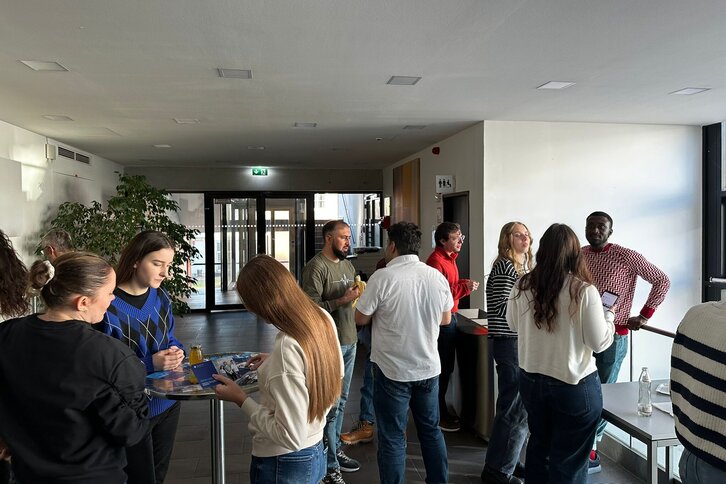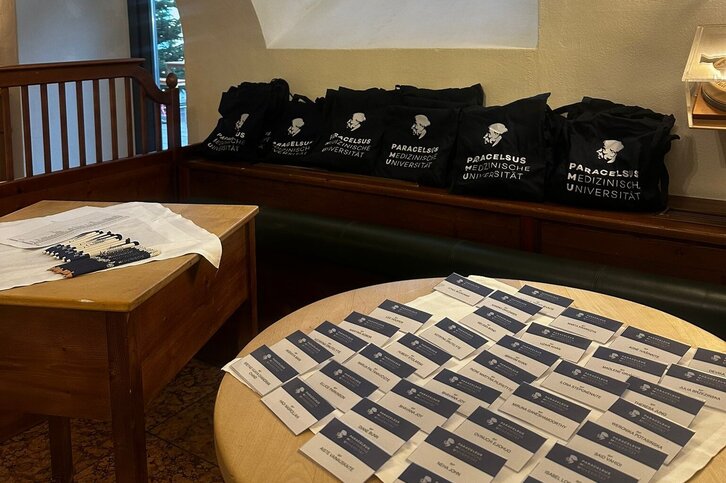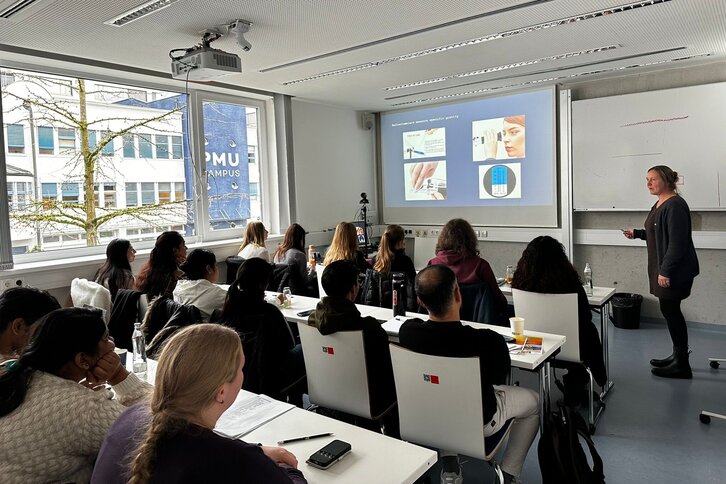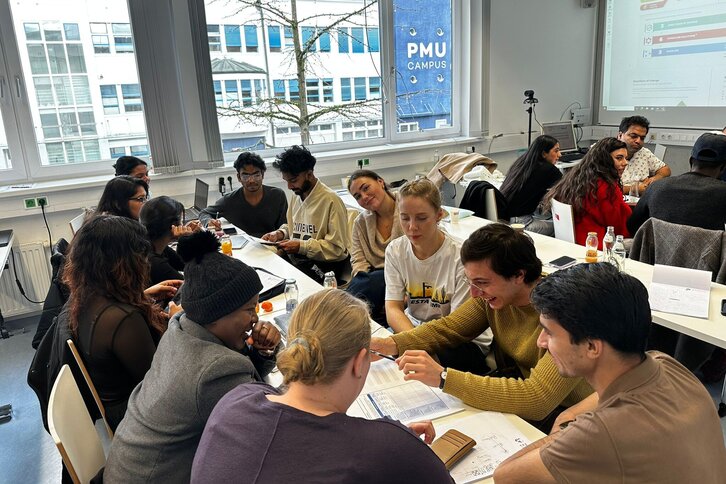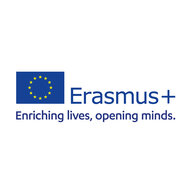
Concluded
Erasmus+ Blended Intensive Programme on Drinking water requirements for health

The course addressed gaps in health authority recommendations about how much water a person should drink for long-term health. Invited speakers from Austria, Croatia, Germany, Singapore, Sweden, the United Kingdom and the United States gave participants valuable insights into distinct effects of drinking water on hydration biomarkers and chronic disease risk factors at the cell, clinical, and population levels. The program introduced participants to systematic review and strategic planning tools to map, target, and address gaps in evidence.
The participants included 29 students from four partner universities:
- Lithuanian University of Health Sciences
- Academy of Applied Sciences in Konin, Poland
- University of J.J. Strossmayer Osijek, Croatia
- Poznan University of Medical Sciences, Poland
A particular highlight of the course was the alternation between theoretical lectures and practical sessions, in which participants were able to familiarise themselves with tools and protocols for investigating the effects of hydration and drinking water.
Program in detail
Informational booklet
Guest lecturers
Professor Ritter´s research focuses on molecular and functional membrane physiology with special emphasis on cellular ion- and water transport. He is specially investigating the mechanisms and principles of cell hydration and cell volume regulation in the context of physiological, pathophysiological and clinical conditions. Markus has published over 200 scientific articles, books, and book chapters.
Jodi Stookey, a US Fulbright Scholar at the Paracelsus Medical University and Nutrition Epidemiologist in San Francisco, California, USA, is an internationally recognized hydration researcher. Her expertise focuses on how to translate causal effects of hydration, which are well-established at the cellular level, into reduced risk of chronic disease at the population-level. Her work has encompassed biomarker studies, crossover experiments, randomized clinical trials, observational analyses of nationally representative data, and systematic literature reviews. She is interested in strategic planning across sectors to develop health authority recommendations, policy, and initiatives that support optimal hydration and health for all.
Lee is a Reader in Research Synthesis, Nutrition & Hydration in the Norwich Medical School at the University of East Anglia and has a BSc in Biochemistry, PhD (University of Manchester) and current dietetic registration. She worked as a dietitian in the National Health Service for ten years, with extensive experience of community health promotion and cardiovascular health. Lee moved to research in 2000 and has since published over 100 peer-reviewed publications, mainly in the areas of dehydration and nutrition of older people and the effects of dietary change on health. Her publications have been cited over 40,000 times with an h-index of 86.
Ellice currently project manages and leads evaluations of innovations and innovative clinical pathways and working practices in healthcare systems. Ellice's PhD thesis focussed on the hydration care of older people, including those living with dementia. Her PhD comprised a systematic review and meta-analysis which estimated the prevalence of low-intake dehydration amongst older people, an ethnographic case study of how people living with dementia drink in care homes and a thematic discourse analysis of online forum data of how people living with dementia drink in care homes. Ellice has worked in dementia research for 10 years and is passionate about making an impact on the lives of people living with dementia. Ellice has vast experience teaching higher education students about hydration care, meta-analysis and research methods. Ellice has presented her PhD research at local engagement events as well as national and international conferences.
Dr Melissa Bond is a Research Fellow at the EPPI Centre (UCL) and the National Institute of Teaching, as well as an Adjunct Associate Professor in Qualitative Evidence Synthesis at the University of Stavanger. Her research focuses on digital evidence synthesis tools, including the use of automation, as well as improving evidence synthesis methods and researcher capacity, alongside research in digital learning and teacher education. Melissa is Co-Editor-in-Chief of the Review of Education journal, a founding editorial board member of the Nordic Journal of Systematic Reviews in Education, and a member of the Center for Open Education Research.
Martin Jakab is a principal investigator and lecturer at the Institute of Physiology and Pathophysiology, part of the Center of Physiology, Pathophysiology, and Biophysics at Paracelsus Medical University, Salzburg and Nuremberg. He earned his doctoral degree from Paris-Lodron University of Salzburg (PLUS) and received the venia docendi in Physiology at Paracelsus Medical University in 2009. With extensive expertise in medical education and a broad skill set in basic and experimental science, Dr. Jakab has led the Laboratory of Functional and Molecular Membrane Physiology (FMMP) since 2012. His research focuses on the mechanisms of cell volume and intracellular pH regulation, exploring their effects on electrophysiological cell behavior, cell proliferation and viability, cell migration, cell death, and the pathogenesis of conditions like cancer and osteoarthritis.
Prof. Ines Drenjančević, PhD, MD, is an award-winning, nationally and internationally recognized scientist (Republic of Croatia – Annual State Award for Science 2017; international awards (Ukraine, Hungary, Serbia, The Microcirculatory Society USA)). She has written a large number of scientific papers, and she stands out in particular for the number and quality of scientific and infrastructure projects that she led at her home college or university. She has been the head of the national Scientific Center of Excellence for Personalized Health Care since 2015. Awarded several times for the quality of published scientific works (Medical Faculty Osijek, Croatian Physiological Society).She is a vice-president of Croatian Physiological Society, vice-president of Croatian Society of Hypertension, member of European Society of Microcirculation, member of European Hypertension Society (working group small arteries) and member of European Society for Cardiology (working group of pathophysiology of coronary microcirculation, editor of WG Newsletter).
Adriana Marton is a Nephrology Consultant and Principal Clinical Investigator at Klinikum Nuremberg, Germany. She also holds an appointment as a Visiting Senior Research Fellow in the Cardiovascular and Metabolic Disease Programme at Duke-NUS Medical School. Her main research interest is body water and energy homeostasis in health and disease. Before joining Duke-NUS, Dr Marton worked as a postdoctoral research fellow in Clinical Pharmacology at Vanderbilt University Medical Center, where she focused on translational research and started bringing experimental animal research findings into mechanistic clinical studies. As a clinician scientist, she combines established clinical investigation with innovative methods such as 23NaMRI imaging and metabolomic analysis in order to understand pathophysiological processes and gain mechanistic insights into renal and cardiovascular disease.
Dr. Natalia Dmitrieva is a Senior Scientist at the National Heart, Lung, and Blood Institute, part of the National Institutes of Health in Maryland, USA. Among her research interests, she studies the effects of hydration on health, focusing on how high extracellular sodium and osmolality—linked to suboptimal hydration—impact cellular and organismal damages and adaptive changes. Over the long term, these factors can accelerate aging and increase the risk of chronic diseases. Her current work involves analyzing long-term clinical studies and electronic medical records to develop criteria based on sodium and osmolality levels for identifying underhydrated individuals at risk of chronic diseases who would benefit from increased water intake. This research aims to support the creation of guidelines for including hydration assessment and preventive interventions in clinical practice.
Dr. Sofia Enhörning is Associate Professor at the department of Clinical Sciences at Lund University in Sweden and a medical doctor and specialist in Internal Medicine at the department of Internal Medicine at Skane University Hospital in Malmö, Sweden. She graduated from medical school at Lund University and obtained her Ph.D degree in Internal Medicine at Lund University. Her research has focused on epidemiological and experimental studies of the vasopressin system and its links to metabolic disease. She is currently focusing on experimental intervention studies, investigating the role of hydration on the vasopressin system and glucose regulation, and on epidemiological studies, investigating the links between hydration markers, cardiometabolic disease and seasonal stressors including outdoor temperature.
Priv.-Doz. Dr. Rebecca Muckelbauer is an expert in nutrition science and public health, with a focus on the impact of water intake on body weight outcomes. As a researcher at Charité – Universitätsmedizin Berlin, she has applied advanced epidemiological methods to generate robust evidence on preventive interventions and chronic disease risk factors. Rebecca is also dedicated to teaching, contributing to master’s programs in epidemiology and public health at the Charité, where she teaches courses on research methodologies and evidence-based medicine. In her current role at the Gemeinsamer Bundesausschuss (Federal Joint Committee), a key decision-making body in the German healthcare system, Rebecca contributes to shaping public health standards and advancing evidence-based policies within Germany’s healthcare system.
Dr. Diane Bunn is an Associate Professor of Nursing Research. Her core areas of research are hydration care for older people and impact of infectious diseases in care homes, using a range of different methods. She adopts collaborative and inclusive approaches, working alongside care home residents, staff and the wider multi-professional team in herresearch. Her teaching roles include teaching on pre-and post registration courses at undergraduate and postgraduate levels across the Faculty of Medicine and Health, as well as post-graduate supervision for MSc and PhD students. SHe is a committee member of the British Society of Gerontology Care Homes' Research Special Interest Group: Care Homes Research :: British Society of Gerontology (britishgerontology.org)



